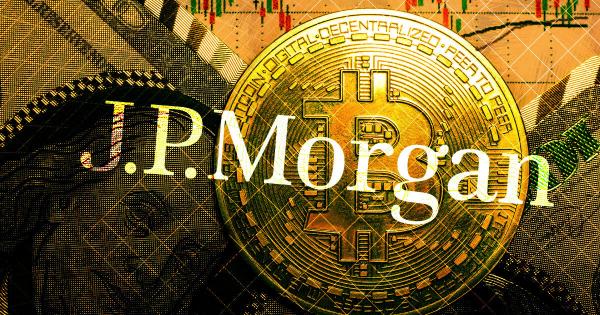JP Morgan believes SEC will be forced to approve ETFs after losing case against Grayscale

JP Morgan analysts led by Nikolaos Panigirtzoglou believe the SEC will be forced to approve the spot Bitcoin exchange-traded fund (ETF) applications submitted by multiple firms after losing its court case against Grayscale Investments, The Block reported, citing a research note.
A federal court ruled that the SEC must review its rejection of Grayscale’s proposal to convert its bitcoin trust into an ETF. The court said that the SEC’s rejection was “arbitrary and capricious” as it failed to explain why it was treating similar products — futures-based Bitcoin ETFs and spot-based Bitcoin ETFs — in different ways.
The analysts wrote in a research note that the SEC would have to backtrack on its previous approvals of futures-based ETFs to reject both Grayscale’s request to convert its trust into an ETF and the spot Bitcoin ETF applications. They added that this move would be “very disruptive and embarrassing for the SEC” and thus seems unlikely.
The SEC has postponed decisions on spot bitcoin ETFs proposed by several firms in recent months — including traditional financial industry giants like BlackRock, Fidelity Investments, and Invesco — until at least mid-October.
The analysts believe:
“[The delay] likely points to approval of multiple spot bitcoin ETF applications at once rather than granting a first-mover advantage to any single applicant.”
This could lead to more competition in ETF fees, putting pressure on Grayscale to lower its fees if its trust is converted to the world’s largest bitcoin spot ETF.
Despite the positive momentum toward regulatory approval for spot Bitcoin ETFs, JP Morgan believes these products will not significantly impact the overall crypto and financial industries.
According to the JP Morgan research note, spot bitcoin ETFs have existed in Canada and Europe for some time but have failed to attract significant investor interest. Additionally, outflows from gold ETFs in recent months did not benefit bitcoin funds, including futures ETFs.
The analysts predict that ETFs launched in the U.S. will likely perform similarly.

